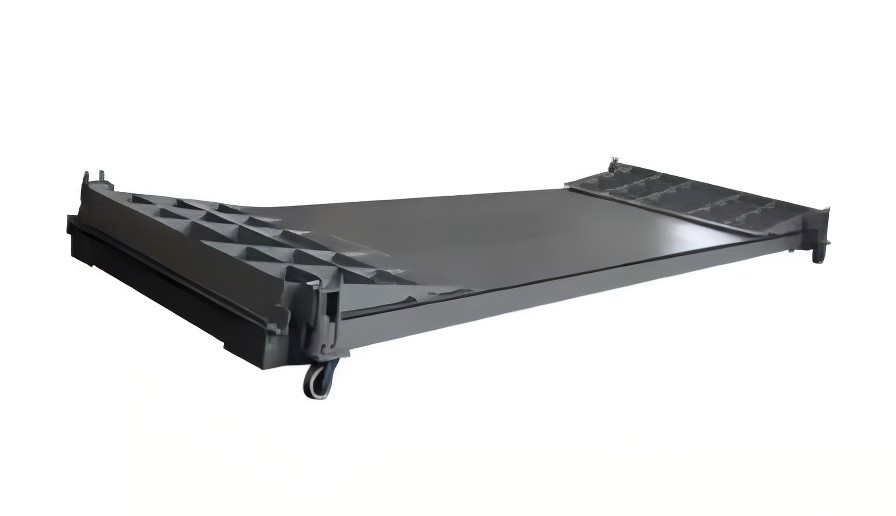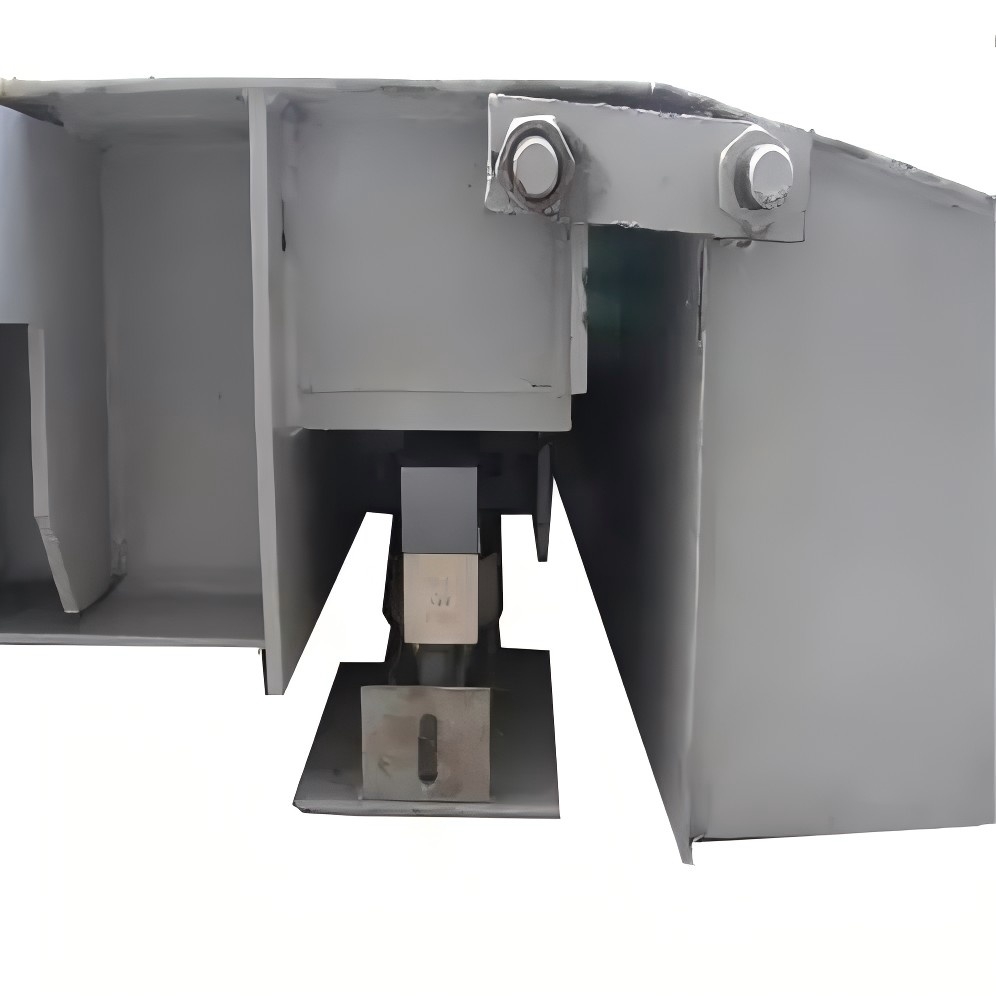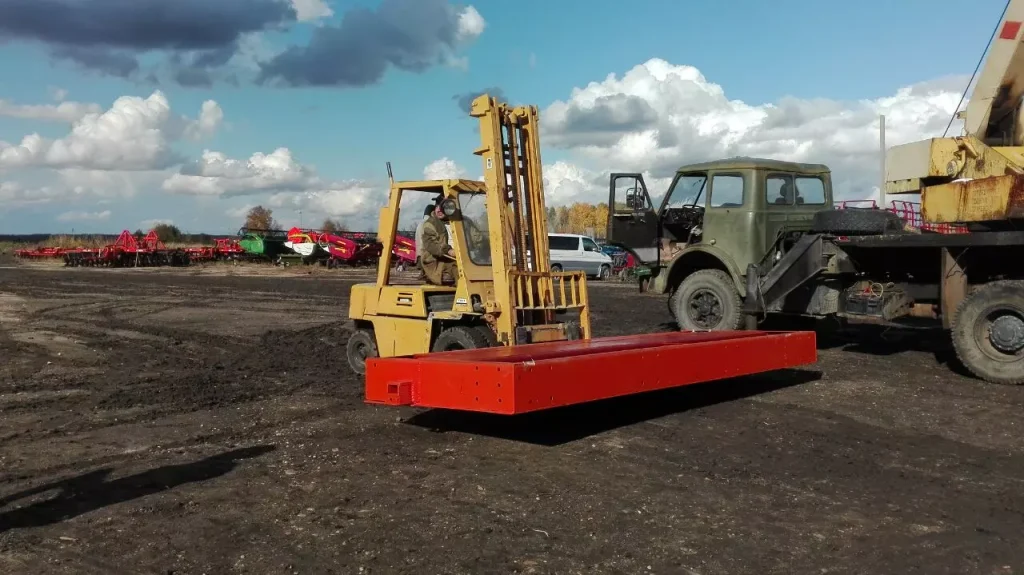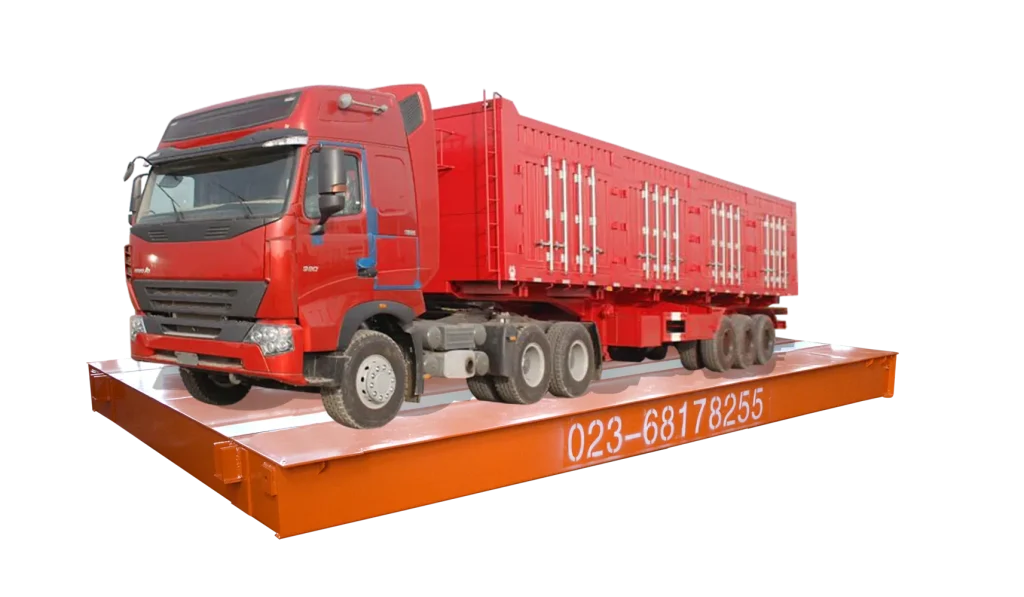Is a Mobile Weighbridge Right for My Needs?
Weighbridges are platform scales used to weigh items placed on them. They play an important role in many industries by ensuring precise weight measurements. Traditional weighbridges are permanent structures that are usually made of concrete and placed in the ground. They have high weight capacities and are ideal for fixed locations that require frequent weighing. Mobile weighbridges are portable versions that are mounted on trailers or skids. Their main advantage is their portability, which allows them to be easily transported and deployed in various locations for temporary weighing requirements. Despite their mobility, they can provide precise weight measurements for a variety of applications. Let us determine whether a mobile weighbridge is the best solution for your needs.

The Differences Between Mobile Weighbridges and Traditional Weighbridges
| Feature | Mobile Weighbridge | Traditional Weighbridge(fixed, permanent structures) |
| Portability | Highly portable and can be moved to different locations as needed. | Not portable, fixed in one location. |
| Setup | Quick and easy to set up, typically takes a few hours. | Requires extensive installation and construction, which can take days or weeks. |
| Cost | Typically less expensive than traditional weighbridges, especially for short-term use. | More expensive due to installation and construction costs. |
| Accuracy | Can be just as accurate as traditional weighbridges. | Accuracy can be affected by environmental factors such as wind and vibration. |
| Capacity | Typically has lower weight capacities than traditional weighbridges. | Can be designed to handle very heavy loads. |
| Applications | Ideal for temporary or portable weighing needs, such as construction sites, waste management facilities, and agricultural operations. | Ideal for permanent weighing needs, such as manufacturing facilities, shipping ports, and warehouses. |

Advantages of Mobile Weighbridges
Advantage 1: Portability and Flexibility
Unlike fixed weighbridges, which are limited to a single location, mobile weighbridges can be easily transported to multiple sites. It is a portable weighbridge. This makes them ideal for temporary weighing applications such as construction projects, recycling facilities, and agricultural operations where weighing requirements may be short-term or move between locations. Mobile weighbridges can be deployed only during peak seasons, resulting in lower costs when not in use. They can also provide backup options in the event of a fixed weighbridge failure or unexpected increases in weighing demands.
Advantage 2: Quick Setup and Deployment
You can transport the weighbridge to your desired location and set it up in a few hours, allowing you to start weighing operations right away. This is especially useful for temporary weighing at construction sites, recycling centers, and agricultural events. The weighbridge’s ease of setup allows you to use it in a variety of locations without requiring extensive preparation or infrastructure changes. This operational flexibility enables you to strategically position the weighbridge to optimize workflow and increase overall efficiency. The quick setup enables you to adjust to changing weighing requirements. If your weighing requirements change or a temporary project arises, the mobile weighbridge can be easily relocated and deployed to meet those needs. The streamlined setup process eliminates the need for extensive planning and coordination, which is commonly required for traditional weighbridge installations. This results in reduced logistical complexity and faster project turnaround times.
Advantage 3: Wide Range of Applications
Mobile weighbridges’ portability and versatility make them ideal for a wide range of applications. Unlike traditional weighbridges, which are fixed in place, mobile weighbridges can be easily transported and deployed at multiple locations. Their adaptability makes them suitable for a wide range of industries and applications. Here’s a brief list of typical industries that benefit from mobile weighbridges:
- Construction: Mobile weighbridges are ideal for weighing construction materials such as gravel, sand, and concrete on temporary job sites. They can also be used to weigh incoming and outgoing loads of machinery and supplies.
- Waste Management: Mobile weighbridges are commonly used in the waste management industry to weigh waste and recyclables at collection points, transfer stations, and processing facilities. This helps to ensure proper billing and compliance with regulations.
- Agriculture: Mobile weighbridges enable farmers to weigh livestock, crops, and other agricultural products directly on-site. This eliminates the need to transport goods to a fixed weighbridge, saving both time and resources.
- Logging and Forestry: Mobile weighbridges can help the forestry industry track wood volume and pricing at harvest sites or processing facilities.
These are just a few examples, and the potential applications extend to many other industries that require temporary or portable weighing solutions.

Considering Your Needs
Factor 1: Weighing Capacity
Using a mobile weighbridge beyond its rated capacity may result in inaccurate weight readings. The weighbridge structure and load cells are designed to support a specific maximum weight. Exceeding this limit may overload the system, jeopardizing the accuracy and reliability of readings. Operating a mobile weighbridge beyond its capacity can cause undue stress on the structure and load cells. This could cause damage to the weighbridge itself, resulting in costly repairs or downtime. In extreme cases, overloading may pose a safety risk if the weighbridge malfunctions under excessive weight.
Factor 2: Portability Requirements
If you intend to move the weighbridge frequently, a highly portable option with a simple setup procedure will increase your efficiency. Portability, on the other hand, maybe less important if the weighbridge will be used primarily in one location with occasional relocation. Consider the accessibility of the weighbridge’s intended use locations. If the sites have uneven terrain or limited space, a more compact and maneuverable mobile weighbridge may be more appropriate.
Factor 3: Site Conditions
Unlike permanent weighbridges, which are built on a specially prepared concrete foundation, mobile weighbridges frequently rely on the ground conditions at the deployment site. Uneven surfaces can cause the weighbridge to tilt slightly, affecting load distribution on the weighing platform and reducing weight reading accuracy.

Conclusion
Mobile weighbridges are an investment, and selecting the right equipment ensures that you get the best value for your money. Mobile weighbridges excel in portability and flexibility, but they may not be appropriate for all applications. Analyzing your requirements allows you to determine whether the quick setup and ability to move the weighbridge are compatible with your workflow. If your weighing needs are concentrated in a single location, you may find that a fixed weighbridge is more efficient. Overall, knowing whether a mobile weighbridge is appropriate for your needs allows you to make informed decisions about your weighing equipment. Chongqing Bincheng Electrical & Mechanical Technology Co., Ltd. occupies a place in the hardware tool instrument industry. If you are choosing a mobile weighbridge manufacturer, please contact us.





